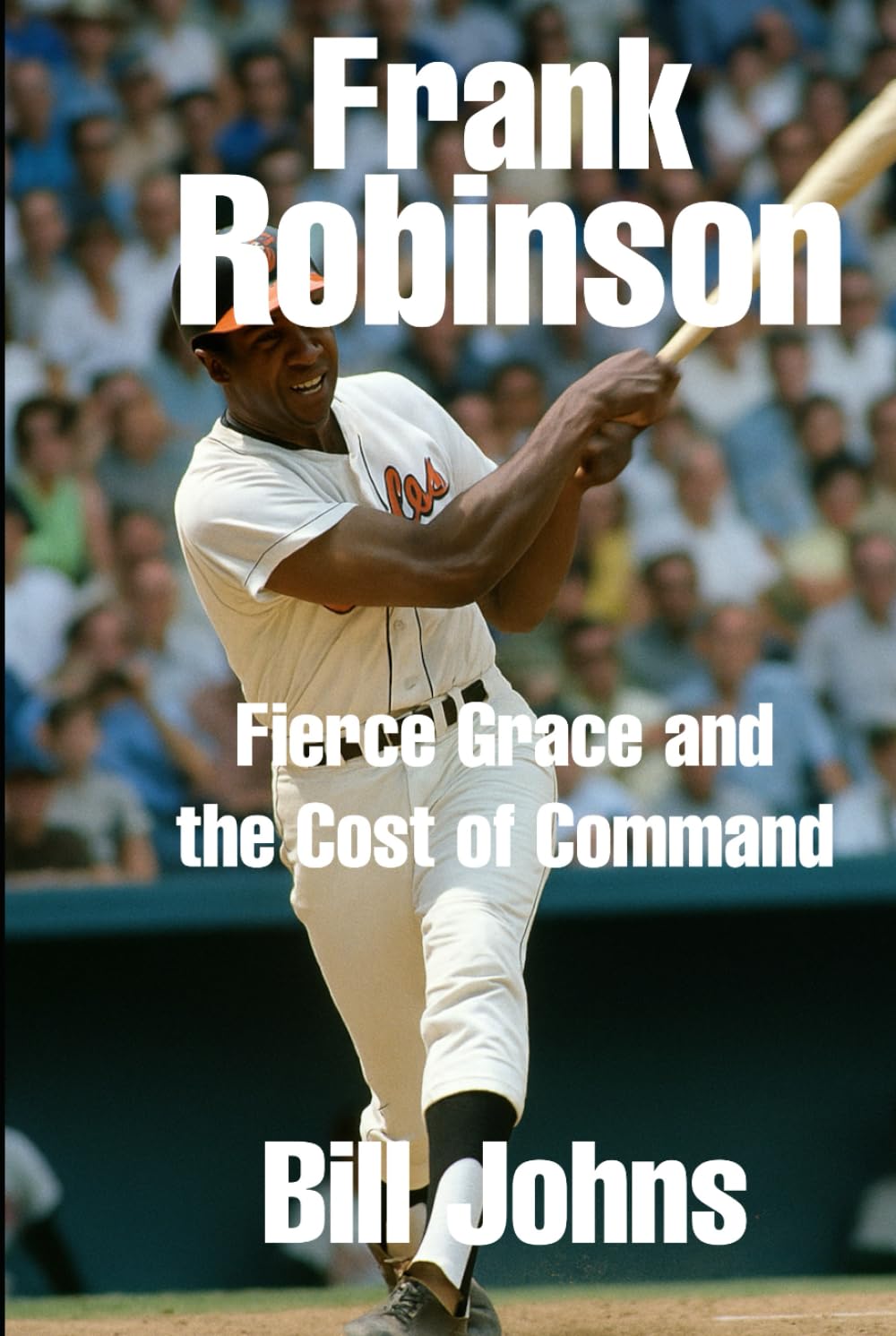Frank Robinson: Fierce Grace and the Cost of Command is a searing, unflinching portrait of one of the most important and under-narrated figures in American baseball history. Combining deep historical research with literary precision, this cultural biography tells the story of the first Black manager in Major League Baseball—not as a feel-good triumph, but as an unsentimental reckoning with power, race, and moral clarity inside one of America’s most symbolically loaded institutions. This is not just a sports book. It is a cultural history of leadership, discipline, and dignity in a system that offered only conditional authority to the men it most needed. From the segregated streets of West Oakland to the dugouts of Cleveland, Baltimore, and Washington, Frank Robinson’s journey reshaped the boundaries of command. He won the MVP in both leagues, hit 586 home runs, managed four franchises, and carried himself with a gravitas that refused performance. And yet, for all his measurable excellence, Robinson remained outside baseball’s mythmaking machinery—a figure respected, feared, misunderstood, and ultimately never fully absorbed by the institution he served. Author Bill Johns, whose previous books include Babe of the Bay , Cal Ripken’s Maryland , and Earl Weaver: The Science of Rage , brings his narrative seriousness to bear in a study that spans not just a life, but a structure. Robinson’s legacy is not cast in soft-focus nostalgia. It is traced through tension, silence, discipline, and refusal. This is a book about Black authority that did not explain itself. It is a book about command as labor—not style. And it is a book that never settles for the easy gesture of recognition. In the decades following Jackie Robinson’s integration of the game, Major League Baseball learned how to tolerate Black excellence—but not how to trust Black leadership. Frank Robinson changed that—not through slogans, but through structure. He managed with restraint, played with ferocity, and mentored in the margins, shaping generations of players through presence rather than performance. His refusal to soften, to flatter, or to mythologize himself made him difficult to package. And that difficulty is what makes him essential. Johns documents not only the facts of Robinson’s career but the unspoken weight of being first in a system that expected deference from the very people it needed to change it. He shows how Robinson—stoic in Cleveland, blunt in Baltimore, enduring in Montreal, and exacting in Washington—refused the performance of gratefulness, insisted on seriousness, and modeled a form of leadership that exposed the institution’s deep ambivalence toward Black command. This is literary sports history at its most mature: evocative, ethically grounded, and unafraid of complexity. The prose carries the emotional density of the era and the psychological architecture of a man who led not by volume, but by standard. Johns does not offer Robinson as symbol. He offers him as a figure who made himself legible only to those who knew how to read gravity. For readers interested in the ethics of leadership, the costs of command, and the intersection of race and American institutional memory, Frank Robinson: Fierce Grace and the Cost of Command is essential. It belongs on the shelf next to works like David Maraniss’s Clemente , Wil Haygood’s Tigerland , and Howard Bryant’s The Heritage . But more than that, it stands as a permanent reminder: the job isn’t to decorate power. The job is to carry it—whether or not the system is ready. Step into the dugout. Look again at the silence. And ask yourself what it means to lead when applause is withheld, recognition is delayed, and still—the standard remains.













